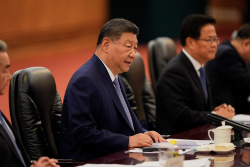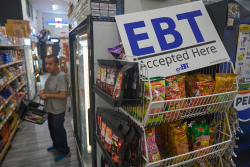Just hours before its passage, the Senate version of the One Big Beautiful Bill Act (OBBBA) cut a proposed moratorium on states enforcing their own AI regulations. Though some regard this as a win for federalism, others argue that the current patchwork represents an abdication of the federal government's jurisdiction over interstate commerce, permits excessive compliance costs to be imposed on the American AI industry, and may ultimately sacrifice the U.S. lead in the field to geopolitical adversaries.
Federalism works best when state-level policy experiments stay contained. "Once the fumes escape the hood, it's no longer an experiment," says Neil Chilson, head of AI policy at the Abundance Institute. "It's environmental spill-over that can choke innovation across the country." Chilson cites the California Privacy Protection Agency's rulemaking on automated decision-making technology as a prime example of one state's AI regulation forcing nationwide companies to reengineer their products.
"Any comprehensive AI regulation that passes in California will likely become the de facto national standard" due to the high concentration of AI companies headquartered in the state and the size of its market, says Will Rinehart, senior fellow in science and technology policy at the American Enterprise Institute. New York is the other state setting the nationwide regulatory baseline. Rinehart says New York's RAISE Act is particularly worrisome because it prioritizes "checking boxes over achieving actual beneficial outcomes." The RAISE Act creates "redundant and potentially contradictory requirements" by layering bureaucratic hurdles such as "reasonableness standards and five-year record-keeping requirements" on top of safety protocols and independent audits, Rinehart explains.
The implications reach beyond U.S. borders. "The situation is grim for defenders of innovation and those of us who fear we could be slipping behind China on the AI front globally," says Adam Thierer, senior fellow for the technology and innovation team at the R Street Institute. The ongoing strategic competition with China means the U.S. does not have "enough breathing room to comfortably tolerate own goals of that magnitude," says Ryan Hauser, a research fellow at George Mason University's Mercatus Center.
Though the prediction markets are bearish on the passage of federal AI legislation, Hauser says voter attitudes are in flux and a "major AI breakthrough or accident…might catalyze the electoral pressure needed for Congress to 'do something.'"
The post California's Tech Regulations Could Strangle AI Innovation for the Whole Country appeared first on Reason.com.













 Bengali (Bangladesh) ·
Bengali (Bangladesh) ·  English (United States) ·
English (United States) ·